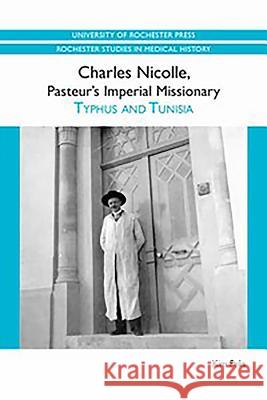Charles Nicolle, Pasteur's Imperial Missionary: Typhus and Tunisia » książka
Charles Nicolle, Pasteur's Imperial Missionary: Typhus and Tunisia
ISBN-13: 9781580464659 / Angielski / Miękka / 2013 / 418 str.
This book examines the biomedical research of Nobel Prize-winning bacteriologist Charles Nicolle during his tenure as director of the Pasteur Institute of Tunis. Using typhus as its lens, it demonstrates how the complexities of early twentieth century bacteriology, French imperial ideology, the -Pastorian mission, - and conditions in colonial Tunisia blended to inform the triumphs and disappointments of Nicolle's fascinating career. It illuminates how these diverse elements shaped Nicolle's personal identity, the identity of his institute, and his innovative conception of the -birth, life, and death- -- or, the emergence and eradication -- of infectious disease. Kim Pelis blends exhaustive archival research with a close reading of Nicolle's written work -- scientific papers, philosophical treatises, and literary contributions -- to explore the complex relations between biomedical ideas and sociocultural context. The result is a study that will be of interest not only to students of French history, colonial medicine, and the history of the biomedical sciences but also to anyone seeking to understand how individuals have attempted to deal creatively with complex times and ambiguous knowledge. Kim Pelis, a medical historian by training, is a writer for the director of the National Institutes of Health.











